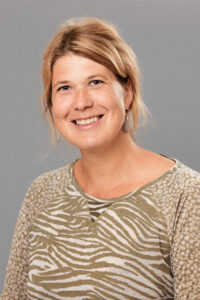5.11.2024
New method for producing blood stem cells can revolutionize stem cell transplant therapy
A new method for producing blood stem cells may in the future replace voluntary bone marrow donors as a source of stem cell transplants. Four European research groups will work on developing the ground-breaking approach with support from the European Research Council (ERC). Cecilia Sahlgren, professor of cell biology at Åbo Akademi University, is taking part in the endeavor.
Blood stem cells residing in the bone marrow produce billions of new blood cells each day. Transplants of these stem cells are vital for patients suffering from e.g. leukemia or immunodeficiency, and currently they are only available via voluntary bone marrow donors. Unfortunately, for approximately one fourth of patients a suitable donor is never found. If blood stem cells could be produced in large scale in laboratory conditions, this would create an alternative source for both blood stem cell transplants and different blood cell types.
Blood stem cells are initially formed in the embryo, they multiply in the fetal liver and are maintained in the bone marrow. At each developmental stage specific chemical, physical and cellular factors of the tissue surrounding the stem cells enable their development and survival. Previous attempts of producing blood stem cells outside of living organisms have not been able to account for these various factors.

In the MakingBlood project blood stem cells are produced from so-called induced pluripotent stem cells which can be created in the laboratory from differentiated human cells and have the ability to develop into any cell type of the body. The method developed within the project will allow culture of these cells in conditions closely mimicking the natural environment where blood stem cells form.
– We will use the newest analysis techniques and a multidisciplinary approach to decipher the factors that are essential for the formation, proliferation, maintenance and correct function of blood stem cells in the human body. Our approach can, in the future, be used as a bioreactor to produce blood stem cells and differentiated blood cell types, such as red and white blood cells, as off-the-shelf products to gradually replace the need for voluntary tissue donations, says Cecilia Sahlgren, professor of cell biology at Åbo Akademi University and InFLAMES group leader. Development of the bioreactor will be performed together with Eindhoven University of Technology where Sahlgren works part-time as a professor of biomedical engineering.
The MakingBlood project is funded by European Research Council (ERC), the most prestigious funding organization supporting top-level research in Europe. The project will receive in total 9.9 million euros of ERC-Synergy funding of which Professor Sahlgren’s share is 2.2 million euros. Professor Sahlgren co-operates with Professor Anna Bigas (Hospital del Mar Medical Research Institute Foundation and Josep Carreras Leukaemia Research Institute, Spain), who coordinates the project; Professor Gerald de Haan (Sanquin Blood Supply, the Netherlands); and Associate professor Cristina Pina (Brunel University of London, UK).
For further information, please contact:
Cecilia Sahlgren, Professor of cell biology
+358-50 300 9680
cecilia.sahlgren@abo.fi
InFLAMES Flagship is a joint initiative of University of Turku and Åbo Akademi University, Finland. The goal of the Flagship is to integrate the immunological and immunology-related research activities to develop and exploit new diagnostic and therapeutic tools for personalised medicine. InFLAMES is funded by Academy of Finland.